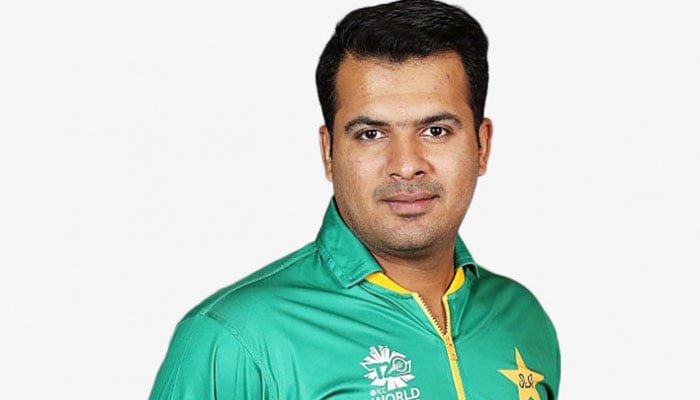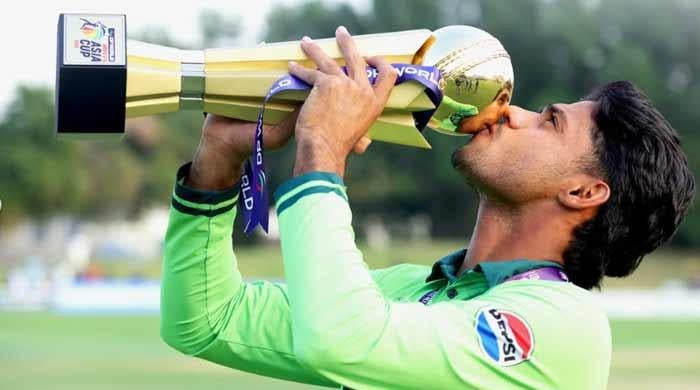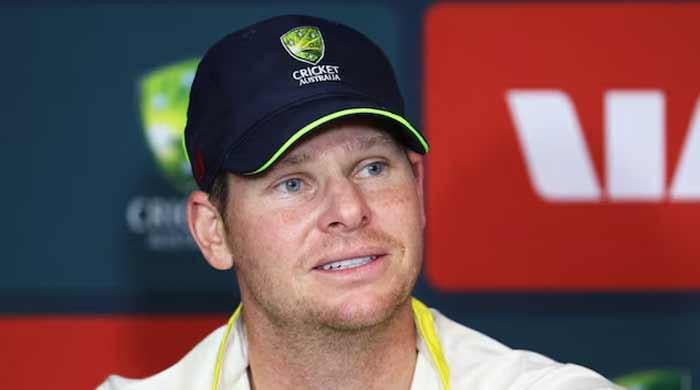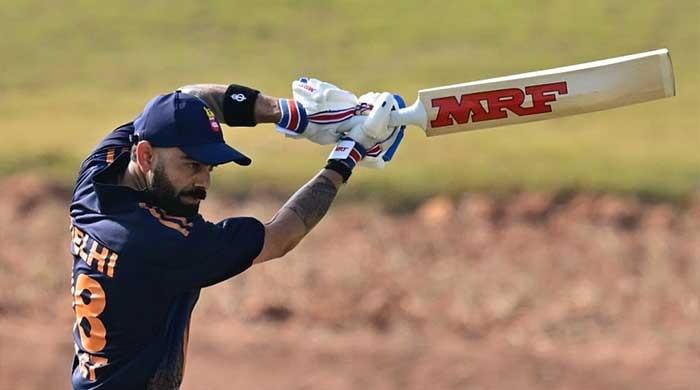Tribunal reached 'irrefutable conclusion' that Sharjeel was involved in breaching the code of conduct
Sharjeel not only met with the alleged bookie but also executed the plan as discussed, says PCB verdict
September 08, 2017

KARACHI: The Pakistan Cricket Board (PCB) on Friday released the detailed verdict of an anti-corruption tribunal against opening batsman Sharjeel Khan, saying that it reached “irrefutable conclusion” that the batsman was involved in breaching the code of conduct.
The tribunal has imposed a five-year ban on Sharjeel Khan, of which half of the sentence remains suspended.
The 60-page detailed verdict, available on PCB’s website, says that Sharjeel not only met with the alleged bookie but also executed the plan as discussed.
“The narration of the events, as made by the PCB, in the opening brief and substantiated by witnesses and circumstances narrated before us, not only by the witnesses of PCB, but by other relevant material available on record, we have come to the irrefutable conclusion that not only spot fixing was discussed by Mr. Sharjeel Khan, but was meticulously executed by him in a text book manner, in the mode and manner agreed,” reads the detailed verdict.
The decision also outlines the series of events which took place on February 9, the opening day of the second edition of Pakistan Super League (PSL) when the alleged fixing was executed by Khan.
“After the (anti-corruption) lecture on 9th February, Sharjeel Khan allegedly knowingly met bookie/fixer called Yousuf Anwar at a café near Conrad Hotel situated at Sheikh Zayed Road, Dubai, along with Khalid Latif,” added the verdict.
“Yousuf offered Sharjeel Khan to fix part of the PSL match to be played on the same day in evening between Islamabad United and Peshawar Zalmi in Dubai,” it added.
The verdict further mentions that the modus operandi of fixing, as allegedly agreed by Sharjeel was that he would, after the first over in whichever subsequent over he comes on strike, from the start of over, play the first and second consecutive balls as dot ball.
It also says that Sharjeel discussed signals with the alleged bookies which included stretching and he carried out the signals later in the match after playing the agreed upon dot balls.
It has also been confirmed that PCB’s Colonel Azam, on receipt of information, didn’t interfere in the execution of this plan with the hope that the incident would not materialise.
“But, unfortunately, the information available proved to be true and the plan was executed as conveyed to him,” it says.
The detailed verdict also says that the tribunal analysed all aspects of the charges on Khan, including views of former players and experts on the match conditions, Sharjeel’s past record in such conditions and his natural aggressive style.
“Three witnesses produced by Sharjeel Khan 1) Dean Jonnes, 2) Sadiq Mohammad and 3) Mohammad Yousuf expressed their opinion only on the merit of the dot balls played by Sharjeel and categorically stated that they were asked by Sharjeel to comment on those.” the verdict says.
“Their depositions appeared almost identical as if these were written by one person alone,” adds the detailed verdict adding that their deposition was without background knowledge and they shared honest opinions during the course of cross-examination.
“The two dot balls carried a story behind it where it was predicted before the match that the two dot balls would be played at a stated moment and it happened and the responses of witnesses (of Sharjeel Khan) was that such an action cause suspicion,” says the verdict.
The tribunal further stated that Sharjeel was provided an opportunity to dispel this impression himself by making an unequivocal and categorical statement on how he was playing against his natural style but he didn’t enter the witness box.
“This leaves us with no option but to draw an adverse opinion with the viewpoint presented by the PCB,” it says.
The verdict also mentions transcripts from Khan’s interview at ICC headquarters soon after the match and also in Lahore on September 17.
In an interview on the night of September 9, according to details provided in the verdict, Khan stated that during the Pakistan vs West Indies series in October 2016, Khalid Latif initiated discussions with him on the modus operandi of fixers. In same the interview Khan admitted whom he was going to meet.
However, in an interview at PCB headquarter on September 17, Sharjeel stated that Khalid Latif told him that Nasir Jamshed was insisting that they meet the man and that Khalid told him that the man was not of good repute. Yet he went to meet him.
According to the verdict, Sharjeel stated that stretching was his routine and that the yellow grip he used was because he considered it lucky for him.
“We have viewed his previous 8 ODIs and 12 T20Is and we observed that squat like stretch, he made in the match, was not visible at all in any of these,” the verdict says.
At a point, the detailed verdict also mentions that it essential to state that story narrated by Khan that he had gone to see a fan.
“This is in sharp contrast to the normal routine and behaviour of the players for fans,” says the verdict further.
The tribunal further states that it came on record that ICC, PCB and UK’s NCA had identical information earlier regarding the happening of this event with photographic details and the information proved to be true.









